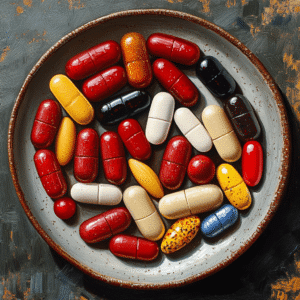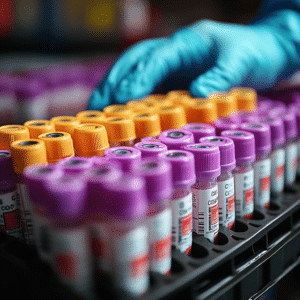Recovery from addiction is a challenging journey filled with ups and downs. Staying positive in recovery not only bolsters your emotional well-being but significantly enhances your mental strength. This article delves into effective strategies and meaningful examples that illustrate how maintaining a positive outlook can fuel monumental changes in your recovery process. For parents grappling with the struggle of their children dealing with addiction, these insights serve as a beacon of hope and encouragement.
Top 7 Strategies for Staying Positive in Recovery
Embracing gratitude is a powerful tool for mental health. Studies have shown that people who practice gratitude experience lower rates of depression and improved psychological well-being. Have you ever tried keeping a gratitude journal? Just jotting down three things you’re thankful for each day can shift your mindset from negative to positive. Oprah Winfrey often speaks about this practice, emphasizing its transformative power. So, grab a notebook and start writing!
Self-care isn’t just a buzzword. It’s essential for building mental resilience. Simple activities like yoga, meditation, or taking a stroll in a park can be profound. Apps like Headspace and Calm offer excellent resources for guided meditation, helping you establish a mindfulness practice. According to experts, committing time to self-care reduces stress and improves the ability to cope with recovery challenges. Don’t overlook this vital aspect of your journey.
Recovery is often a team sport. Connecting with groups like SMART Recovery or local community support can create a nurturing environment. Hearing personal stories from others can provide hope and perspective, reminding you that recovery is possible. Engaging with a community not only fosters positivity but also builds a sense of belonging. After all, going through this journey alone can be overwhelming; don’t hesitate to reach out!
Sometimes, the road to recovery can feel like a marathon. One way to cope with that feeling is to break larger goals into bite-sized tasks. Think about how athletes like Michael Phelps approach their performance by focusing on incremental progress. By setting SMART goals—Specific, Measurable, Achievable, Relevant, and Time-bound—you’ll find that your accomplishments boost your confidence and keep you motivated. Each small victory counts!
Your words hold immense power. Implementing positive affirmations into your daily routine can significantly influence self-perception. Motivational speakers, like Louise Hay, highlight the importance of these affirmations. Consider creating a personal set that resonates with you and recite them daily. Affirming yourself positively can combat negative thoughts and fortify your self-image, helping you stay strong in your recovery.
Stepping outside of your challenges to support someone else can provide a renewed sense of purpose. Programs like Recovery Coaches are structured avenues that enable individuals to guide others while sharing their experiences. Whether it’s volunteering or actively listening to someone who’s struggling, helping others cultivates gratitude and strengthens your resolve. This active engagement is a vital part of finding joy in recovery.
Sometimes, you need a helping hand. Engaging with professionals who specialize in addiction recovery can equip you with vital coping strategies. Institutions like the Hazelden Betty Ford Foundation emphasize personalized therapeutic approaches tailored to individual needs. Remember, it’s okay to seek support; working with a professional can turn the tide in your recovery journey.

Embracing the Journey: The Importance of Perspective
Staying positive in recovery often relies on the ability to reframe hardships as opportunities for growth. Research from the University of California, Berkeley, highlights that individuals who maintain a positive outlook during recovery experience significant life transformations. Success stories abound, proving that perspective enhances daily experiences and drastically alters the recovery journey. A shift in viewpoint can spark motivation and resilience, leading you to new possibilities.
Conclusion: Empowering Your Recovery Journey Through Positivity
Staying positive in recovery is more than just a catchphrase; it’s essential for successful healing. By weaving gratitude, self-care, community support, and professional assistance into your daily life, you can nurture lasting mental strength. Each step taken to maintain a positive mindset leads to deeper healing, growth, and fulfillment in life beyond addiction. For parents grappling with the tragedy of addiction, remember that your positive approach can inspire your children and others in their darkest moments. You are not alone in this.
For more resources and support, visit Mothers Against addiction. Whether you’re searching for ways to find joy in recovery or want to know what to say to a grieving mother, we’re here for you every step of the way. Together, we can create a community full of hope, strength, and resilience, proving that staying positive in recovery can unlock new chapters of life.

Staying Positive in Recovery
The Power of Positivity
Staying positive in recovery can feel like a tall order sometimes, but there are countless reasons to embrace an upbeat mindset. Did you know that adopting a positive outlook can significantly enhance your mental strength and resilience? Studies have shown that individuals who focus on optimism tend to experience lower stress levels, which is a huge plus when dealing with the ups and downs of recovery. Keeping your spirits high doesn’t just help you; it can also support others around you. For instance, when communicating with a grieving mother, consider sharing uplifting anecdotes or inspiring stories. You can find guidance on this sensitive topic here.
Finding Joy in New Activities
One effective way to maintain positivity is through exploring new hobbies. Engaging in activities that spark joy can serve as a powerful distraction from cravings and negativity. Whether it’s painting, gardening, or even setting goals for your fitness journey, the possibilities are endless! If you’re stuck on ideas, explore the potential of developing new Hobbies that excite you. Additionally, spreading positivity can come from connecting with others, like following uplifting voices on platforms such as Instagram. Check out content from inspiring individuals; for example, Rikki Laughlin shares her journey and more on her platform here.
Practical Steps Toward Positivity
Sometimes, keeping the positive vibes flowing means restructuring your day-to-day life. A well-organized approach can make a world of difference, especially when considering your finances. By understanding terms like net pay Vs gross pay, you can better budget your funds and alleviate stress. Explore more here( to make sure that your budget aligns with your wellness goals! Another practical step? If you find that a job is bringing you down, don’t hesitate to make a change. A letter Of resignation template can be your first step towards a more fulfilling career, one that nourishes your journey of staying positive in recovery.
Remember, maintaining a positive mindset during recovery is not just beneficial for you alone; it creates a ripple effect that can uplift your entire circle. So, lean into positivity, explore new ventures, and don’t shy away from making necessary changes in your life. Staying positive in recovery isn’t just a phrase; it’s an empowering lifestyle choice!

Why is positivity important in recovery?
Positivity plays a huge role in recovery because it can lead to lower rates of depression and better overall coping skills. When you stay positive, it can really help improve your mental and physical well-being, which is especially important when you’re facing the struggles of addiction treatment.
What do recovering addicts need?
Recovering addicts need a strong support system, healthy coping strategies, and a commitment to avoiding triggers that can lead to relapse. It’s all about creating a safe environment where they can heal and rebuild their lives.
What are the 5 core elements of the recovery model?
The five core elements of the recovery model are hope, personal responsibility, education, social support, and self-advocacy. These elements help guide individuals through the recovery process, helping them to take charge of their healing journey.
How do you learn to love yourself in recovery?
Learning to love yourself in recovery often starts with practicing self-compassion and forgiveness. Taking small steps, like celebrating little wins and being kind to yourself, can really help boost your self-esteem along the way.
How do you stay positive during recovery?
Staying positive during recovery can be tough, but surrounding yourself with supportive people and focusing on your goals can make a big difference. It’s also important to remind yourself that setbacks are part of the journey, and staying hopeful can keep you moving forward.
How does positivity help heal?
Positivity helps heal by promoting better psychological well-being and enabling you to handle life’s challenges more effectively. When you focus on the good, it can lead to healthier choices and a more fulfilling life.
What not to say to an addict in recovery?
When talking to an addict in recovery, steer clear of comments that can seem shaming or judgmental, like “Just quit” or “You’re weak.” It’s better to offer encouragement and understanding, focusing on their progress instead.
What are the 3 R’s from addiction to recovery?
The three R’s from addiction to recovery are Recognize, Reflect, and Rebuild. This process encourages individuals to acknowledge their struggles, think about what they’ve been through, and then work on building a new life.
How do you motivate a recovering drug addict?
Motivating a recovering drug addict often involves showing genuine support and understanding their struggles. Encourage them by celebrating their progress, helping them set achievable goals, and reminding them of their strength.
What are the 7 R’s of recovery?
The seven R’s of recovery include Recovery, Respect, Responsibility, Readiness, Resilience, Reintegration, and Renewal. These principles promote a holistic approach toward healing and living a fulfilling life post-addiction.
What are the 4 C’s in recovery?
The four C’s in recovery stand for Commitment, Consistency, Confidence, and Connection. These elements help build a strong foundation for ongoing growth and stability in a person’s recovery journey.
What are the 3 A’s of recovery?
The three A’s of recovery are Awareness, Acceptance, and Action. Recognizing where you are, accepting your journey, and taking proactive steps to heal can significantly aid in the recovery process.
How do you forgive yourself in recovery?
Forgiving yourself in recovery involves recognizing your past mistakes, understanding that you’re on a journey of change, and giving yourself permission to move forward. This can take time, so be patient with yourself.
How do I start loving myself again?
Starting to love yourself again can begin with daily affirmations, self-care practices, and surrounding yourself with positive influences. It’s about taking those small steps to rediscover your worth.
How to build a life after addiction?
Building a life after addiction means setting new goals, creating healthy routines, and nurturing relationships that support your recovery. It’s all about finding joy and purpose in a sober life.
Why is positive self talk important in recovery?
Positive self-talk is super important in recovery because it helps to combat negative thoughts and boosts your confidence. By being kind to yourself, you create a healthier mindset that can aid in your healing.
What is positivity and why is it important?
Positivity is about focusing on the bright side of life, even when things get tough. It’s important because it can lead to a healthier mindset, better relationships, and greater resilience when dealing with challenges.
Why is it important to stay positive during hard times?
Staying positive during hard times helps you cope better and keeps your spirits high. It can empower you to face challenges more effectively and encourages resilience against setbacks.
Why is positivity the key to success?
Positivity is considered key to success because it fosters a mindset that promotes growth, creativity, and persistence. When you believe in the possibility of good outcomes, you’re more likely to overcome obstacles and achieve your goals.




























